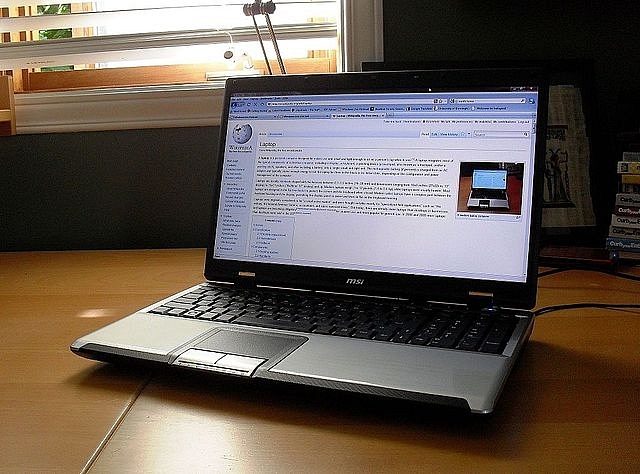Insta
Soon Use Your Laptop Heat To Charge Your Phone: Bengaluru Scientists Develop Waste Heat To Power Convertor

A modern laptop computer. Photo credit: Kristoferb/Wikimedia Commons
Scientists from Bengaluru have found a new Lead (Pb) free material which can efficiently convert waste heat to power which can be used for small home equipment and even automobiles, said the Ministry of Science and Technology in a statement.
Energy conversion is not a very efficient process. Only a small fraction of energy that is used is actually productive. The rest of it becomes waste, often getting released as heat. This waste heat can be tapped, and further converted into electrical energy.
Scientists from Jawaharlal Nehru Centre for Advanced Scientific Research (JNCASR), Bengaluru, led by Professor Kanishka Biswas have now identified a lead-free material called Cadmium (Cd) doped Silver Antimony Telluride (AgSbTe2) which can efficiently allow recovery of electricity from ‘waste heat’. They have reported this major breakthrough in the journal Science.
Most efficient thermoelectric materials developed by scientists so far use Lead (Pb) as a major constituent element, restricting their use for mass-market applications.
Thermoelectric energy conversion allows generation of electrical voltage when one end of a material is heated while keeping the other side cold. Finding an efficient material to realize this scientific principle has been a daunting task for scientists.
Professor Biswas is now trying to commercialize the high-performance thermoelectric materials and devices, in collaboration with Tata steel where lots of waste heat is generated in steel plants.
This work is supported by Swarna-Jayanti fellowship and project fund from Science and Engineering Research Board (SERB) and Department of Science & Technology (DST), India, along with support from New Chemistry Unit (NCU) & International Centre for Materials Science (ICMS), JNCASR, Bangalore.
Support Swarajya's 50 Ground Reports Project & Sponsor A Story
Every general election Swarajya does a 50 ground reports project.
Aimed only at serious readers and those who appreciate the nuances of political undercurrents, the project provides a sense of India's electoral landscape. As you know, these reports are produced after considerable investment of travel, time and effort on the ground.
This time too we've kicked off the project in style and have covered over 30 constituencies already. If you're someone who appreciates such work and have enjoyed our coverage please consider sponsoring a ground report for just Rs 2999 to Rs 19,999 - it goes a long way in helping us produce more quality reportage.
You can also back this project by becoming a subscriber for as little as Rs 999 - so do click on this links and choose a plan that suits you and back us.
Click below to contribute.
Latest